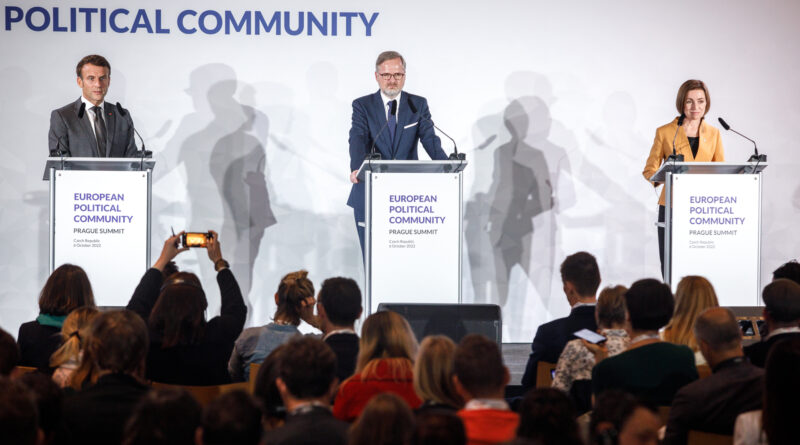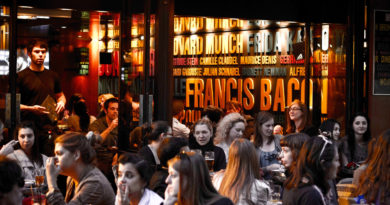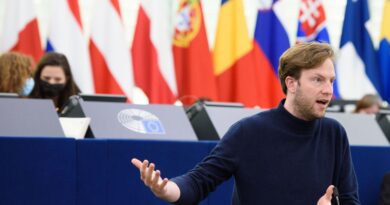How a new European club could open opportunities for EU-UK youth exchanges
Another chapter in Europe’s history opened on Thursday, when the leaders of 44 countries gathered in Prague for the first meeting of the European Political Community, a new club of European nations.
Their discussion focused on peace and security, the war in Ukraine, the economy, energy and climate change, but leaders also floated the idea of future youth exchanges.
Could this open new opportunities for experiences across the UK and the EU after Britain left the European Union and its popular Erasmus+ programme?
What is the European Political Community
The idea of a European Political Community was launched by French President Emmanuel Macron at the closure of the Conference on the Future of Europe in May.
Speaking at the European Parliament, Macron proposed to create a new community to “organise Europe from a political perspective and with a broader scope than that of the European Union”.
The idea was to keep better links with the EU’s neighbours after Russia’s aggression of Ukraine. It was also the result of a series of crises, including the UK’s decision to leave the bloc.
The French President argued this new European organisation “would allow democratic European nations… to find a new space for political and security cooperation, cooperation in the energy sector, in transport, investments, infrastructures, the free movement of persons and in particular of our youth.”
The proposal was later endorsed by EU countries and EU Council President Charles Michel mentioned the opportunity to include in the discussion “socio-economic programmes which do not require regulatory alignment” such as “Erasmus and Horizon research and development”.
How the community will work
Czech Prime Minister Petr Fiala, who hosted the event, described the community as “an informal platform” where leaders can “cooperate, share ideas and develop solutions to return peace and prosperity to Europe”.
While the first gathering was dominated by the topics of security, energy and immigration, an EU official told Europe Street that “looking at the future”, ideas were also floated with regard to youth, including the possible launch of student exchanges.
In a joint opinion piece published on Politico before the meeting, the prime ministers of Albania, Edi Rama, and the Netherlands, Mark Rutte, wrote:
“Beyond these challenges, we must also invest in a positive agenda for our common future. First and foremost, this means investing in our youth… We must continue to promote exchanges involving young people and cooperation between universities, and we can use the EPC to share best practices in this area.”
President Macron confirmed after the meeting that some leaders, including those of Albania, Serbia and Ireland, raised the issue of a “common policy for young people” and called for a “more integrated policy” for universities and students.
“We need to strengthen cooperation between our universities and between our education policies to enable young people to have a genuine European culture across borders,” Macron added.
Excluded from the Erasmus+ programme
While it is not known yet how these intentions will turn into reality, CEPS, a think tank specialised in European policies, noted that in the context of the new community “the most developed instrument for youth mobility is by far the Erasmus programme.”
The initiative was launched in 1987 and has since expanded from students to apprentices, volunteers, professors and workers. More than 10 million people have participated in an Erasmus exchange so far and all the countries represented in the European Political Community have taken part in the programme.
In addition to the 27 EU member states, Iceland, Liechtenstein, Norway, North Macedonia, Serbia and Turkey are associated to Erasmus+. Albania, Armenia, Azerbaijan, Bosnia and Herzegovina, Georgia, Kosovo, Moldova, Montenegro and Ukraine can participate in certain activities too.
The only two countries that are currently excluded are Switzerland and the United Kingdom. Switzerland was cut out in 2014 following the decision to re-introduce quotas on EU citizens. But it has since replaced Erasmus+ with the Swiss-European Mobility Programme (SEMP).
The UK decided to abandon Erasmus+ when it left the EU. It then replaced the programme with the Turing scheme, which funds UK students going overseas but not EU students seeking experiences in the UK.
Now the European Political Community could open new opportunities for collaboration in this area. It is for the countries that will host the next meetings, Moldova, Spain and the UK, to continue the discussion.
Claudia Delpero © all rights reserved
Photo from left to right: Emmanuel Macron (President of France), Petr Fiala (Prime Minister, Czech Republic), Maia Sandu (President of Moldova)© European Union
Europe Street News is an online magazine covering developments related to EU citizenship rights. We are fully independent and we are committed to providing factual, accurate and reliable information. As citizens’ rights are at the core of democracy, our website and newsletter are free to read. Please consider making a contribution so we can continue and expand our coverage. Thank you!




